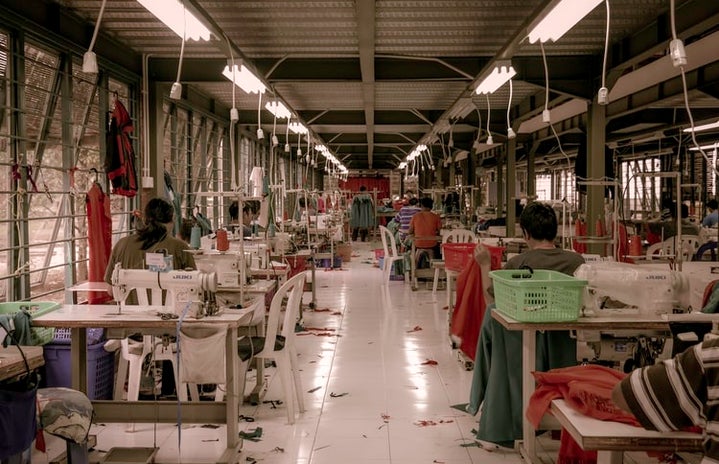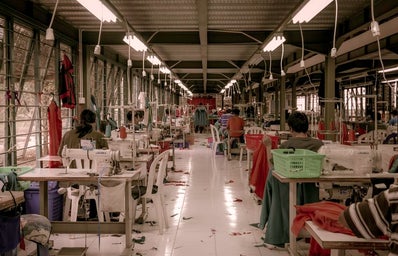Fashionable items. Replicas of the most sought-after pieces seen on influencers. Huge 50% off price tags. An abundance of voucher codes. What could possibly be wrong with websites that promise such great value for an incredibly low price?
The rise of fast fashion chains such as Shein, Zaful and Yesstyle have increased rapidly in the past five years, luring in customers with their shocking prices and fashionable pieces. This surge could be a result of the popularity of shopping hauls that are dominating the Youtube and Tiktok scene as some of the most viewed videos.
On these social media platforms, exposure seems to be the key to success, resulting in multiple videos being posted every day, showcasing new items of clothing that get discarded after the video has been created. The stigma behind outfit repeating on these apps increases the issue of overconsumption, as people feel judged for washing and wearing the same clothes again, which is completely normal offline.
With full transparency, as a student who has a low income and loves to keep up with the latest fashion trends, I am guilty of ordering from these brands after seeing similar pieces on my favourite influencers for a much higher price. The pieces themselves often vary in quality and sizing, which makes navigating these websites a long process of reading the reviews of each item and looking through the sizing charts.
In 2020, the clothing brand Shein became the most popular fast fashion brand on social media, making 10 billion dollars in sales up from 4.5 billion dollars in 2019. It remains the most talked about brand on Tiktok. Shein is one of the many brands who take part in the crimes of fast fashion, which is not only environmentally damaging, but promotes the unethical conditions of the factories these garments are made in. There is an exploitative element for the workers, who are usually impoverished women that toil for little money and have very few rights, allowing these brands to keep their prices low. In addition, the ideas of independent designers are stolen without any credit or recognition. These websites can become addictive, with each order encouraging buyers to spend more to access these vouchers codes for their next ‘fix’.
The issues with fast fashion can lead to societal devaluation of the labour that goes into making clothes. It is only natural to be shocked when seeing a dress for a higher price, despite being an innovative design and made from quality material, if we are so used to seeing these cheaper, stolen designs on Shein advertisements. Therefore, the turnover rate for fast fashion leads to an alarming environmental impact.
On average, we throw away over 81 pounds worth of clothing every year, as these unethical pieces are usually made up of cheap materials like polyester (essentially plastic) and can take up to 200 years to decompose. As the industry produces over 100 billion garments every year, it can be viewed that we are literally living upon a huge pile of plastic. As trend cycles now only last a surprising 3 months, it is easy to see how buying items for the trend rather than longevity in fast fashion outlets can be detrimental to our environment.
Fashion should be a creative medium for everyone, but can fashion really be inclusive whilst being ethical and sustainable? I recommend exploring the world of charity shops and thrift stores that sell thousands of secondhand clothes for a small fee. The satisfaction of finding a bargain that nobody else owns is fun and exciting! There are many ethical businesses with quality items that are timeless and will continue to withstand the trend cycles, with a few examples including ‘People Tree’, ‘Lush’ and ‘Fanfare’.
Many high street shops like H&M and New Look have started to take action, providing more sustainable clothing options for those who want to be more environmentally conscious, however they still have many steps to take before their production of clothing can be deemed as ethical.


